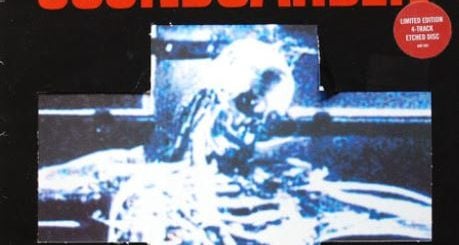Jesus Christ Pose by Soundgarden Lyrics Meaning – Unveiling the Profound Message Behind the Iconic Anthem
Lyrics
In your Jesus Christ pose
Arms held out
Like you’ve been carrying a load
And you swear to me
You don’t want to be my slave
But you’re staring at me
Like I, like I need to be saved
Saved, like I need to be saved
Saved
In your Jesus Christ pose
In your Jesus Christ pose
Arms held out, in your Jesus Christ pose
Thorns and shroud
Like it’s the coming of the Lord
And I swear to you
That I would never feed you pain
But your staring at me
Like I, like I’m driving the nails, nails
Like I’m driving the nails, nails
Like I’m driving the nails, nails, nails
Like I’m driving the nails, nails
In the Jesus Christ pose
In the Jesus Christ pose
Arms held out
In your Jesus Christ pose
Thorns and shroud
Like it’s the coming of the Lord
Would it pain you more to walk on water
Than to wear a crown of thorns?
It wouldn’t pain me more to bury you rich
Than to bury you poor
In the Jesus Christ pose
(Poor) in the Jesus Christ pose
Soundgarden’s ‘Jesus Christ Pose’ is a powerful evocation of iconoclastic imagery, wrapped in the 90s grunge movement’s characteristic angst and rebellious spirit. A gritty anthem released in 1991, the song not only shook the foundations of rock music but also became a cultural milestone for its piercing critique on the misuse of religious and iconographic symbolism.
Navigating through the visceral vocals of Chris Cornell and the spellbinding instrumentals of his bandmates, the song beckons a deeper dive into the layered textures of its message. While at the surface level ‘Jesus Christ Pose’ can be seen as an assault on religious hypocrisy, a finer excavation into its lyrics reveals the complexities of savior complexes and the human propensity for martyrdom.
The Martyrdom Complex: Posing as a Savior
The ‘Jesus Christ Pose’, as Soundgarden so vividly describes, is not merely about religious connotation—it is a term wielded to dismantle the pretense of self-martyrdom often exhibited by public figures. Cornell’s snarling voice becomes the medium through which this critique is broadcasted, chiding those who ostentatiously suggest they bear the weight of the world with a messianic grandiosity.
It’s a pose, quite literally, that mocks the crucifixion—a symbol of supreme sacrifice, co-opted by those seeking the glory of perceived selflessness without enduring the pain that true sacrifice demands. The song rebukes this feigned nobility and cries foul on the false prophets of modern culture who inadvertently mock the very essence of sacrifice.
Deciphering the Messiah Imagery: A Sinister Parallel
Cornell’s lyrics are saturated with religious undertones that shine a harsh light on the commodification of sacred symbols. ‘Thorns and shroud/Like it’s the coming of the Lord’ demonstrates the ambiguity in how spiritual motifs can be contorted as accessories in the masquerade of humility.
The song’s reference to walking on water and wearing a crown of thorns juxtaposes two iconic images associated with Jesus Christ, dissecting the contrasts between acts of miraculous benevolence and the brutal reality of suffering—a charting of the distance between genuine altruism and self-aggrandizing spectacle.
Confronting the Saviors: Questions of Intention
Cornell makes an interrogative stand in the lyrics, confronting the subject with their own performative altruism. The rhetorical question ‘Would it pain you more to walk on water / Than to wear a crown of thorns?’ not only challenges the authenticity of one’s claims to self-sacrifice but also puts them to a metaphorical test of integrity.
This line also suggests an inversion of values—implying that for some, the superficial acclamation of performing miracles (walking on water) might be more desirable than the profound empathy and understanding that comes with actual suffering (wearing a crown of thorns).
Unleashing the ‘Nails’ of Truth: The Song’s Most Memorable Lines
‘Like I’m driving the nails’ hammers in an indictment of blame, resentment, and accusatory tones. The imagery is violent and laden with guilt, implicating the subject in creating their own crucifixion narrative, with the accuser (or the audience) cast as the oppressor.
This line evolves into a powerful refrain throughout the song, symbolizing the destructive cycle in which individuals ensnare themselves through gestures of exaggerated sacrifice. It’s a vicious attack on the spiritual posers, stripping down their theatrics to expose the barrenness of their pretense.
The Hidden Meaning: A Louder Call to Authenticity
In the end, ‘Jesus Christ Pose’ becomes more than an anti-hypocrisy anthem; it’s a rallying cry for authenticity in an age of spectacle. The song calls out the misguided appropriation of sacred iconography not in the name of faith, but as a means to manipulate and gain control or admiration.
It is perhaps this deep-seated search for the real amidst the sea of posturing that makes ‘Jesus Christ Pose’ transcend beyond its grunge roots and into a timeless interrogation of the human condition. It’s not about religion per se, but about the truth underlying our actions and intents—the difference between using a pose for elevation or embodying a posture of genuine service.








